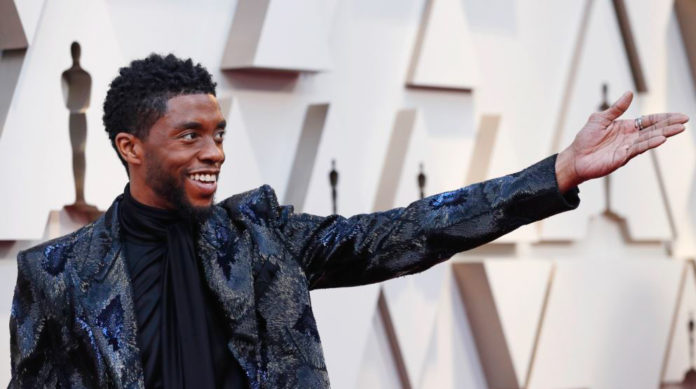

“In my culture, death is not the end, it’s more of a stepping off point.”
These were the words of the first Black-led Marvel Cinematic Universe hero, the Black Panther, played by the late Chadwick Boseman. His death on Aug. 28 due to colon cancer sent the world and the Black community into immeasurable grief.
Boseman will be remembered for his iconic lead role in the Black Panther film which saw the introduction of the first Black-led MCU film. An unparalleled hero in his realm, Boseman managed to lend his remarkable talent to movies that all have enjoyed. Boseman filmed from Marshall to Da 5 Bloods and several more while he endured countless surgeries and chemotherapy. After Boseman was diagnosed with stage III colon cancer in 2016, he battled for four years in silence as it progressed to stage IV cancer.
Boseman was known as the embodiment of his onscreen characters, but after his passing, viewers began studying various scenes, searching for a hint of his struggle. Boseman was famous for portraying strong Black characters, who were instrumental to the Black community. His roles as Jackie Robinson and the Black Panther left a lasting mark on the hearts of many across the globe.
He was an icon and a testament to young Black children that the elusive and seemingly unattainable are mere fallacies of the mind. Boseman personified the meaning of a true warrior on and off-screen and it became clear that it was only natural for him to portray a strong, Black revolutionary figure because that’s who he was by heart.
In a world where Black people have been subordinates for centuries, Black Panther gave the Black community a renewed hope of elevation. Wakanda is a place owned and governed by powerful Black leaders with Black women who are fierce warriors in battle, which is different than Black women playing the role of an oppressed, angry woman/wife, or the subordinate role of a maid. These were the heroes and heroines that Black people dreamt of.
The term “Wakanda Forever” was coined in the film and gained global recognition, becoming a symbol of unity and all that is attainable.
Wakanda is a place where Black people are no longer minorities. Wakanda is where the women are protected and not just the protectors. Wakanda is where the cries and concerns of men, women and children don’t fall on deaf ears. Wakanda is a place where the justice system is every bit traditional and just in judgment, and where dreams become reality.
Boseman and Black Panther epitomized the hopes and dreams of unity for Black people. ‘Vibranium’, is vital to Wakanda for its ability to absorb, store and release large amounts of kinetic energy. Similarly, the Black community has absorbed oppression, stored the pain and released positivity and strength into the world.
In one scene from the film where Boseman as King T’Challa struggled to fight the enemy, struggled to defend his legacy, he fought with honor. Such was his fight against cancer, he never gave up and he didn’t surrender. He knew the world was watching and he reminded everyone exactly why he is a Black King and a Black Marvel.
A Black King, a Black Hero, a Black Marvel, a Black Icon.
His legacy lives on within his people and the world unites in chants of “Wakanda Forever!”
Rest in peace my king.
